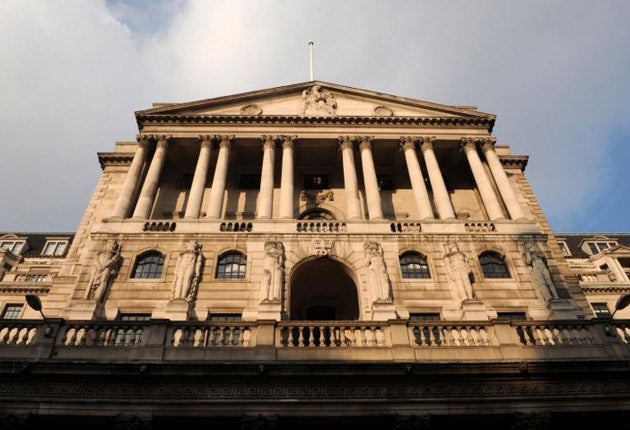UK inflation unexpectedly drops to 4%

Inflation unexpectedly slowed last month, official figures revealed today, as hard-pressed retailers slashed prices to pull in cautious consumers.
The Consumer Prices Index (CPI) rate of inflation was 4% in March, down from 4.4% in February and back to the level seen in January, the Office for National Statistics (ONS) said.
City analysts had expected the CPI rate to hold at 4.4%.
The drop in the cost of living was driven by falling food prices, the ONS said, which slipped 1.4% as supermarkets rolled out heavy discounts to draw in cash-strapped consumers.
The figures came as the British Retail Consortium (BRC) revealed the biggest sales drop in its 16-year history, with total sales in March dropping 1.9% on a year ago.
The improved rate of inflation will weaken the prospect of an imminent interest rate hike by policymakers at the Bank of England, although the figure is still double the Government's 2% target.
The most significant downward pressure between February and March came from the falling cost of food and non-alcoholic beverages, most notably fruit, bread and cereals.
Supermarkets were behind the plunge, the ONS said, as they slashed prices in the face of weakening consumer confidence.
With consumers reining in their spending on all but essential purchases, retailers - part of the UK's powerhouse services industry - have suffered in recent months. The BRC said like-for-like sales in March were down 3.5% - the worst performance since April 2005.
Retailers have issued a string of gloomy updates in recent weeks, with Mothercare, HMV and Currys and PC World parent Dixons Retail all warning on profits, while wine merchant Oddbins entered administration.
Other measures of inflation also dropped today. The headline rate of Retail Prices Index (RPI) inflation, which includes mortgage costs, was 5.3% in March, down from 5.5% in February.
Today's figures will further alleviate pressure to raise interest rates, even though the Bank itself has forecast inflation hitting 5% in the coming months.
Last week, the Monetary Policy Committee (MPC) held interest rates for the 25th month in a row as it faced a challenging mix of soaring inflation and sluggish economic growth.
The UK economy went into a shock 0.5% decline in the final quarter of 2010 and recent surveys of the services and manufacturing sectors have offered a mixed picture of the recovery.
The majority of MPC members believe the inflation surge is down to temporary price shocks and are minded to wait and see how the economy fared in the first three months of 2011 before tightening monetary policy.
Elsewhere, Britain's goods trade deficit unexpectedly narrowed in February to its smallest since February 2010 at £6.8 billion. Economists had forecast a deficit of £8.1 billion.
Philip Shaw, economist at brokers Investec, said today's figures helped "sound the death knell" for a May rate hike.
He said: "Our central view remains that some of the gloom surrounding the economy may lift by the summer and the rates may well rise in August.
"However it is possible that today's inflation figures are the start of a more benign trend and that a hike will not occur until later in the year or perhaps beyond."
The improvement in the rate of inflation weighed on the pound, which dived against most major currencies.
But there was still some upward pressure on inflation last month as transport prices rose 1.2% between February and March, as the conflict in Libya drove up the cost of oil.
The largest contribution came from fuels and lubricants, where pump prices rose 2.7% to reach record levels of £1.32 for petrol and £1.38 for diesel.
Elsewhere, an ONS report said January's rise in VAT from 17.5% to 20% added an estimated 0.76% to the CPI rate in January, almost twice as much as the effect of last year's VAT rise.
Join our commenting forum
Join thought-provoking conversations, follow other Independent readers and see their replies
Comments